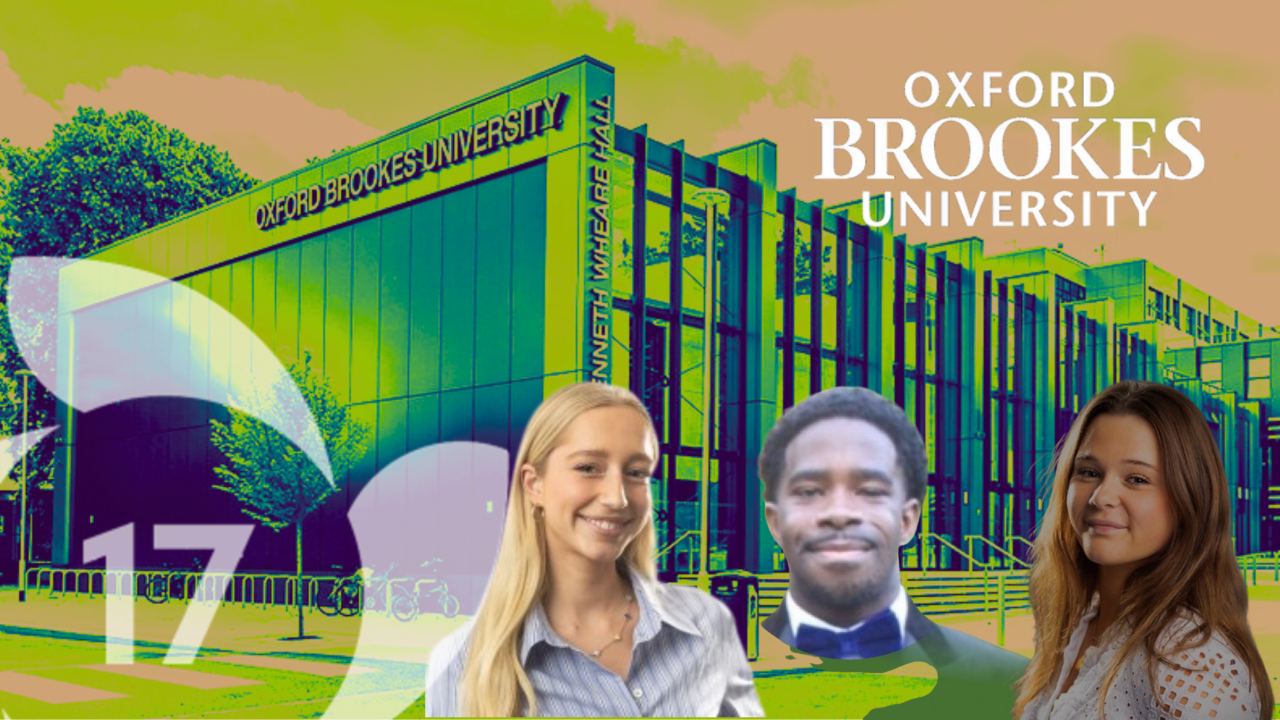From Research to Real Change: How Students Helped Us Improve Mentoring
Jul 04, 2025
🎓 What We Learned from Partnering with Oxford Brookes University on Impact Measurement
Over the summer, Goal17 partnered with three brilliant Oxford Brookes University students—Ella Spencer, Ivan Samuel, and Tallulah Haycock—as part of the university’s Student Consultancy Programme. Their task was bold: to help us better understand and evidence the impact of our mentoring programmes for care-experienced young people.
We’ve long believed in the power of external perspective—and this project proved just how valuable that can be.
Working closely with our team and supported by Oxford Brookes Business School, the students undertook a comprehensive project blending primary interviews, literature review, and impact evaluation techniques. Their work was outstanding—both in depth and delivery—and we’re proud to share some of the key findings and insights that emerged from their research.
💡 What the Consultancy Project Involved
Over the course of six weeks, the students:
-
Conducted in-depth interviews with programme participants, gathering first-hand reflections from young people receiving mentoring through Goal 17
-
Carried out a literature review of over 10 national and international studies relating to mentoring, trauma, and outcomes for care-experienced youth
-
Analysed qualitative and quantitative data to identify patterns, gaps, and recommendations
-
Delivered a professionally presented impact report and slide deck, which we are now using to inform internal training and partner conversations
The report focused on two core questions:
-
What impact is Goal 17’s mentoring programme having on the lives of care-experienced young people?
-
What could we do to enhance that impact even further?
🧠 Key Insights from the Research
Here are some of the headline findings we believe will be of interest to anyone working in youth services, mentoring, or programme design:
1. Mentoring Matters—but Relationship Quality is Key
All three young people interviewed said they would recommend the programme to others, highlighting benefits like:
-
Improved confidence and emotional resilience
-
Feeling more able to talk openly with someone they trust
-
Support with CVs, education choices, and practical life transitions
-
Feeling less isolated, especially during times of change
However, the extent of the impact varied depending on the consistency and quality of mentor engagement. Where mentors were proactive, flexible, and available, the benefits were profound. Where contact was infrequent or entirely virtual, young people described the experience as limited.
This reaffirms our internal belief: mentoring isn’t a product—it’s a relationship.
2. Near-Peer and Non-Hierarchical Models Are Powerful
The literature review echoed something we’ve seen time and again in our own work: young people respond best to mentors they can relate to.
The research pointed to the benefits of:
-
Near-peer mentoring, where the mentor is closer in age and/or lived experience
-
Trauma-informed training for mentors
-
Non-hierarchical relationships, where trust and openness are prioritised over formality
For care-experienced youth who may have experienced multiple professional relationships, a mentor who is genuinely present, emotionally available, and human, makes all the difference.
3. Mentoring Helps Where Traditional Services Don’t Reach
The interviews revealed a recurring theme: mentoring provided something other services didn’t.
As one participant said:
"It’s someone who actually listens, who I don’t have to pretend for."
Another described how their mentor gave them a clearer sense of direction:
"She helped me figure out what I want to do. It made me feel like I could do something with my future."
This emotional safety and sense of agency was echoed throughout the report—reminding us that the true impact of mentoring can’t always be measured in attendance or academic grades. It lives in the everyday, human-scale progress that mentoring creates.
4. Tech Must Enhance, Not Hinder, Connection
One of the more practical insights the students surfaced was about our previous technology platform. Participants described it as “confusing” and a barrier to effective communication. In some cases, they had resorted to exchanging personal numbers with mentors to stay in touch.
We’re proud to say we’ve already addressed this, replacing our app with Wowment—our encrypted WhatsApp-based safeguarding tool. It allows mentors and mentees to communicate safely and intuitively without exchanging contact details, while embedding safeguarding and AI monitoring in the background.
This feedback reaffirmed our guiding principle: safeguarding should never come at the cost of connection.
🔁 Recommendations We’re Taking Forward
We’re incredibly grateful to the students for the thoughtful, constructive recommendations they shared. These are already informing our practice. Here’s what we’re acting on:
-
Investing in more in-person mentoring opportunities and activity-based engagement
-
Further embedding trauma-informed training into our onboarding process
-
Increasing mentee voice in the matching process, giving them greater choice and agency
-
Using technology only where it genuinely improves the experience
-
Continuing to measure both objective and subjective outcomes, not just what’s easy to quantify
🎓 A Huge Thank You
To Ella Spencer, Ivan Samuel and Tallulah Haycock—thank you. Your work was intelligent, rigorous, and compassionate. You approached every part of the project with curiosity and professionalism. You have left a real legacy here, and we are proud to have played a small part in your journey.
We also want to thank Oxford Brookes Business School, particularly Prof Tim Vorley OBE, Holly Carr, Heather Woodruff, and Lucy Ramjiawan for facilitating this programme and continuing to champion collaboration between education and enterprise.
This consultancy project was part of our long-standing partnership with the university, through which our founder serves as Entrepreneur in Residence—a role focused on helping students apply their skills to meaningful social innovation.
💬 Want to Get Involved?
If you're a student looking to build real-world experience, or an organisation looking to open your doors to the next generation of changemakers, we couldn’t recommend this programme more highly.
At Goal 17, we believe that evidence matters. But more than that, we believe in listening. To young people. To volunteers. To researchers. To students.
If you'd like to explore how we might work together, get in touch.
#Goal17 #OxfordBrookes #MentoringMatters #ImpactMeasurement #StudentConsultancy #YouthVoice #CareLeavers #SocialImpact #EntrepreneurInResidence #CoDesign #Wowment #TraumaInformedPractice
